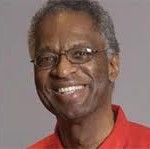Editor's note: After posting Howard Fuller's concerns about universal vouchers last week, we asked Andrew J. Coulson, director of the Cato Institute's Center for Educational Freedom, to offer his perspective.
 It’s not hard to see why Howard Fuller might be skeptical of universal government education programs. Public schooling is one such program and it has done an atrocious job of serving the poor. But is its universality the cause of its failure? Fuller believes that the poor are forgotten and given short shrift under universal programs and that the wealthy are favored by them. If that were the case in public schooling, we would expect schools serving the poor to receive less funding than those serving the wealthy. In responding to Fuller, Matthew Ladner contends that this is indeed the case: that public schooling “systematically distributes more money per pupil” to wealthier kids.
It’s not hard to see why Howard Fuller might be skeptical of universal government education programs. Public schooling is one such program and it has done an atrocious job of serving the poor. But is its universality the cause of its failure? Fuller believes that the poor are forgotten and given short shrift under universal programs and that the wealthy are favored by them. If that were the case in public schooling, we would expect schools serving the poor to receive less funding than those serving the wealthy. In responding to Fuller, Matthew Ladner contends that this is indeed the case: that public schooling “systematically distributes more money per pupil” to wealthier kids.
Actually, though, that doesn’t appear to be true. According to the federal Department of Education’s Condition of Education 2010, Indicator 36-1, districts with the poorest students are the highest spending. Public schools serving these students are not atrocious because they are underfunded, they are atrocious despite the fact that they are the best funded districts in the nation.
Having voted to raise public school spending relentlessly for generations, and having chosen to direct the highest level of per-pupil spending to the poorest children, it is hard to believe that Americans are indifferent to the education of the poor.
A more plausible explanation of the facts is that Americans would love to see their poorest countrymen thrive educationally but don’t know how to make that happen. For generations they have been told by the media, academics, and political leaders that the solution is higher spending. They have gone along with that recommendation and it has failed utterly. A few are finally beginning to realize that, but they still don’t know how to improve matters.
But the school choice movement believes it does know the cause of the problem: the lack of alternatives. Middle and upper income families find it easier to pay for private schooling or to relocate away from the worst public schools. They have alternatives that the poor do not. As a result, they get better service. The movement’s solution is thus to ensure that everyone has alternatives.
And this brings us back to Fuller’s claim: that the poor will be better served by a school choice program targeted exclusively at them. Is he right? In answering that question, it helps to consider a few facts and distinctions that are usually overlooked:
• First, there is a difference between universal access to the education marketplace and universal participation in a government program;
• Second, tiny markets are dramatically inferior to vast ones;
• And third, it actually matters who is footing the bill for a child’s education.
Saying that everyone should have educational choice is not the same thing as saying that everyone should participate in a particular government program. (more…)
 When Indiana's celebrated state superintendent of instruction, Tony Bennett, spoke in support of universal vouchers at last week's American Federation For Children summit, the panel's moderator did not sit quietly. After all, just last year, Howard Fuller (pictured here) fought legislative attempts to include high-income families in a Milwaukee voucher program he helped create for poor children. Of the prospect of universal vouchers in Wisconsin, Fuller proclaimed, "That's when I get off the train."
When Indiana's celebrated state superintendent of instruction, Tony Bennett, spoke in support of universal vouchers at last week's American Federation For Children summit, the panel's moderator did not sit quietly. After all, just last year, Howard Fuller (pictured here) fought legislative attempts to include high-income families in a Milwaukee voucher program he helped create for poor children. Of the prospect of universal vouchers in Wisconsin, Fuller proclaimed, "That's when I get off the train."
So Fuller, a legend in the school choice movement, politely invoked "the moderator's privilege" after Bennett spoke. And he was characteristically blunt.
“The thing that I most worry about is that people will forget the importance of protecting poor people in this,” Fuller said, before adding a few sentences later, “I just want people to know … when folks move towards universal (vouchers), just know that some of us are going to fight it.”
The world of school choice is more textured and dynamic than it’s portrayed. It’s not a monolith. It’s many camps, with overlapping but not always consistent visions. For the most part, those differences were glossed over at the AFC summit, and for good reason. The summit was a fitting celebration of recent victories. It was rightly punctuated by moving speeches from New Jersey Gov. Chris Christie, Louisiana Gov. Bobby Jindal and Newark Mayor Cory Booker.
But the differences are there. And beneath the surface, some tensions too. Fuller has drawn a line in the sand before, including in this podcast interview last year with former redefinED editor Adam Emerson. Here are his latest remarks in full, as best as I could hear and transcribe them: (more…)